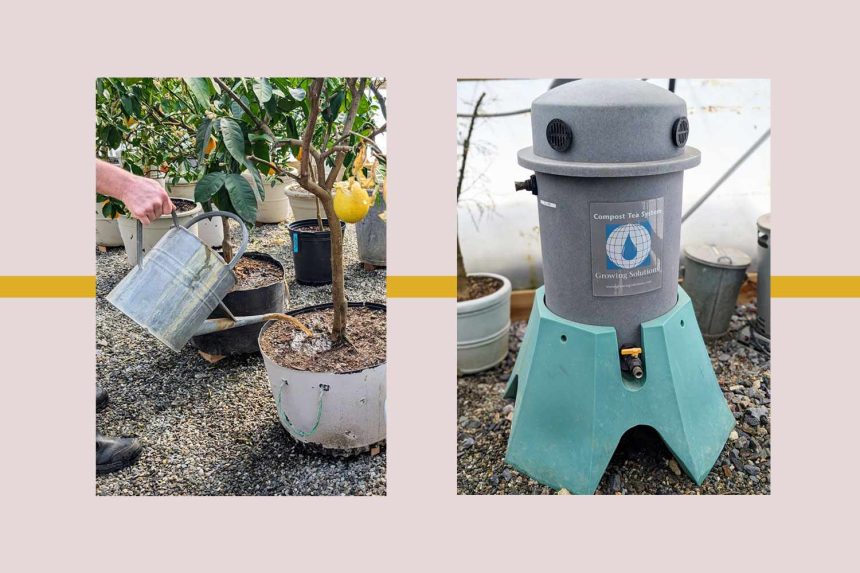Key Takeaways
- Compost tea is the process of extracting liquid from solid compost material.
- Feed your plants with compost tea every couple of weeks for the best results.
- Schedule compost tea feeding on watering days so you don’t over-water your plants.
Feeding your garden with compost tea is a popular technique to nourish plants for healthy blooms and fruitful vegetation. At Martha’s farm, her head gardener, Ryan McCallister, feeds the plants, including her many potted citrus trees, with compost tea every couple of weeks, according to her recent blog post.
Compost tea is the liquid extracted from solid compost material after it’s been submerged in water. When you add water to the compost, the microorganisms in the compost can thrive and multiply, benefiting the growth and health of your plants.
Martha says compost tea “improves soil structure, reduces water stress, and is an ideal alternative to toxic chemical pesticides and fertilizers.”
Martha uses a brewing system from Growing Solutions, Inc., but you can make your own compost tea system at home with compost, water, and a receptacle of some kind, like a bucket.
Courtesy of The Martha Blog
Martha’s Best Compost Tea Tips
As a seasoned gardener, Martha shares her tips for creating and using compost tea for the best results in her recent blog post:
- Schedule the tea composting on the same day that the plants are due for watering so you don’t over-water them.
- Add a cup of compost tea catalyst to the bucket or brewing system to stimulate the microbial growth in the tea.
- Add a few quart scoops of compost for each batch of tea.
- Add booster supplements to the mix. Martha adds two cups of 2-4-1 fish fertilizer and two cups of 2-3-1 fish and seaweed plant food.
- Let the tea mixture brew for 24 hours before using.
- The next day, dispense the tea into the watering cans to distribute the tea and feed all the plants.
- When pouring the feed into each plant, reach all around the roots. In addition to the soil and roots, you can pour the tea on the leaves.






